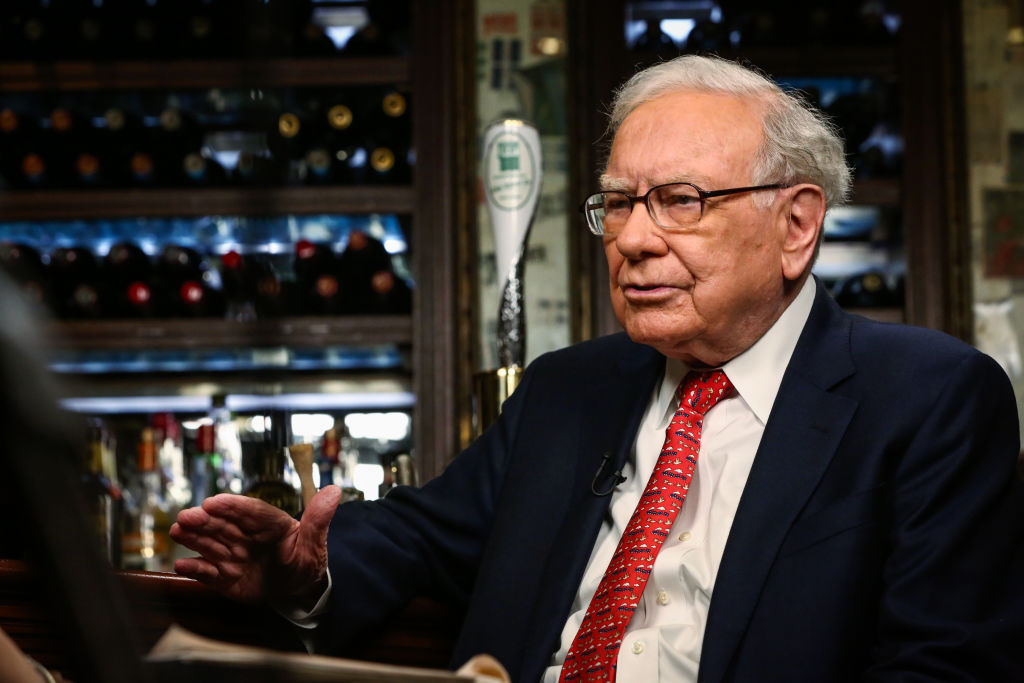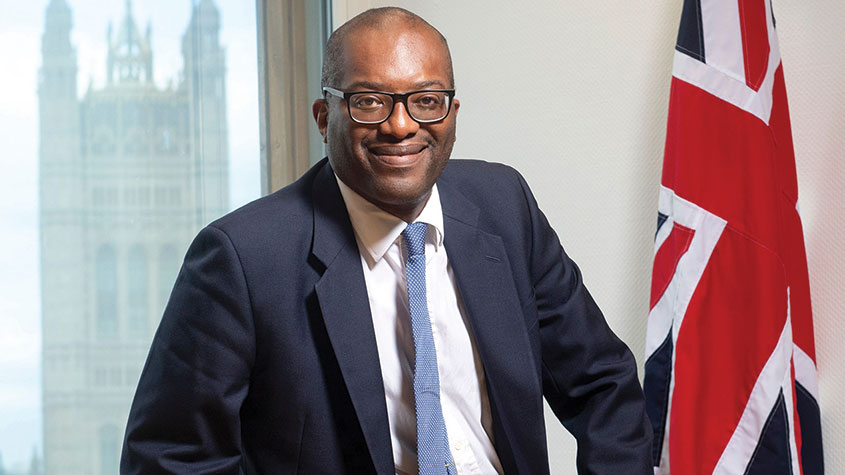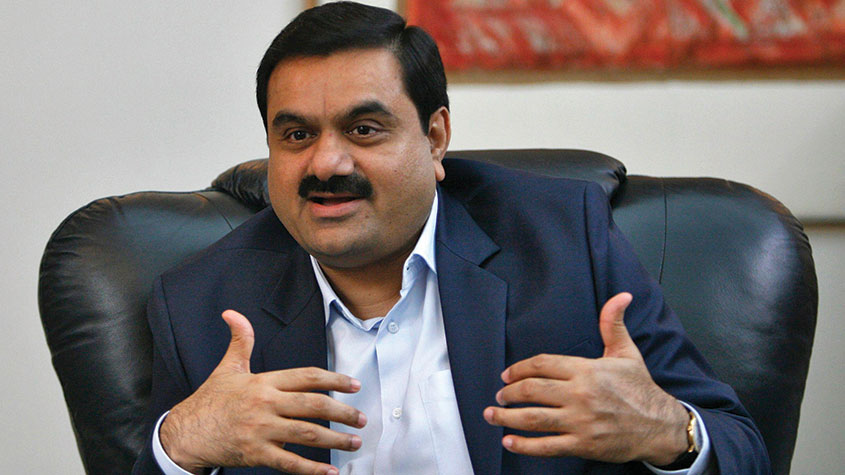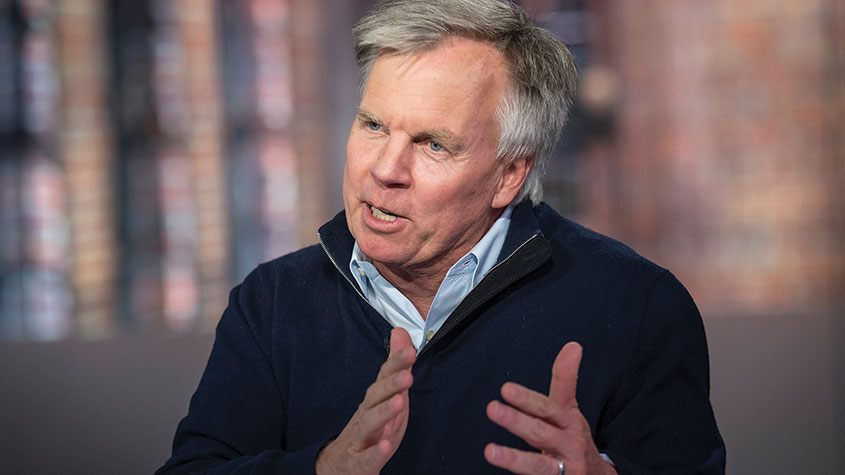Johann Rupert: the Warren Buffett of luxury goods
Johann Rupert, the presiding boss of Swiss luxury group Richemont, has seen off a challenge to his authority by a hedge fund. But his trials are not over yet.

Get the latest financial news, insights and expert analysis from our award-winning MoneyWeek team, to help you understand what really matters when it comes to your finances.
You are now subscribed
Your newsletter sign-up was successful
Want to add more newsletters?

Twice daily
MoneyWeek
Get the latest financial news, insights and expert analysis from our award-winning MoneyWeek team, to help you understand what really matters when it comes to your finances.

Four times a week
Look After My Bills
Sign up to our free money-saving newsletter, filled with the latest news and expert advice to help you find the best tips and deals for managing your bills. Start saving today!
Johann Rupert, the presiding boss of Swiss luxury-goods group Richemont (Zurich: CFR), is a rumbustious, “thick-skinned…streetfighter”, according to friends. But Bluebell, an activist hedge fund, accused him of being a “godfather-like” autocrat, at a tense annual general meeting in Geneva earlier this month.
Submitting resolutions to shake up governance at Richemont – where the Rupert family holding company owns just a 9.1% stake but 50% of the voting rights – Bluebell accused Johann Rupert of acting like a “padre padrone” in his quest to marginalise minority shareholders.
The episode has “propelled the family into the spotlight” at a potentially tricky time, says the Financial Times.
MoneyWeek
Subscribe to MoneyWeek today and get your first six magazine issues absolutely FREE

Sign up to Money Morning
Don't miss the latest investment and personal finances news, market analysis, plus money-saving tips with our free twice-daily newsletter
Don't miss the latest investment and personal finances news, market analysis, plus money-saving tips with our free twice-daily newsletter
Although Richemont recently reported a strong set of results, the company, whose brands include Cartier, Van Cleef & Arpels, and Mont Blanc, is “grappling with the question of succession and a looming downturn in the global economy”. It recently booked a €2.7bn writedown after selling a majority stake in its unprofitable e-commerce operation, Yoox Net-a-Porter, and the shares have lagged those of rivals Hermes, LVMH and Kering over the past five years.
Johann Rupert’s fearsome adversaries
Still, in the end Rupert “easily saw off the challenge” from Bluebell, and he might reflect that he’s managed more fearsome adversaries.
Although Swiss-listed Richemont seems a European company through and through, its roots lie in South Africa where the billionaire has long been a lightning rod for discontent – despite being “a big critic of apartheid” and a prominent mover in the campaign to free Nelson Mandela, who subsequently became a friend.
The problems began during the presidency of Jacob Zuma, when Rupert faced legal action from Zuma’s son, Edward, over claims he had “captured” the judiciary and was “trying to remove his father from office”, noted BusinessTech (South Africa) in 2016.
As far as the country’s populist Economic Freedom Fighters’ party is concerned, he remains a bogeyman of “white monopoly capital”. Last year, the party accused the current president, Cyril Ramaphosa, of allowing Rupert “to run the country”. That threat isn’t going away.
Richemont's beginnings in tobacco
Richemont’s story “began with tobacco plants”, says Luxus+ magazine. The business dynasty was founded by Johann’s father, Anton – a young Afrikaner from the Eastern Cape who realised, in the midst of the Great Depression, that people were likely to continue smoking no matter how bad times got.
He “began making cigarettes in his garage” before founding the Voorbrand tobacco company, with just £10 and the backing of two investors. By 1948, when the firm was renamed Rembrandt, business was so brisk that Rupert senior had expanded into wine, spirits and food, as well as mining and banking. By the time Johann was born two years later, the family had moved to the wealthy town of Stellenbosch in the wine regions of the Western Cape – where it continues to run a large farm.
International expansion quickly followed. In 1954, Rembrandt took a majority stake in the British cigarette-maker Rothmans, later buying a licence to produce Cartier cigarettes in the US. When Cartier’s boss died in 1979, the Ruperts bought a majority stake in Cartier Monde – marking their first big foray into the luxury market.
When anti-apartheid boycotts in the 1980s threatened the international business, Johann Rupert – by then a financier working with Lazards in New York – had the idea of separating it off. The newly-named Richemont floated on the Swiss Stock Exchange in 1988.
Over the years, Johann Rupert has proved such a deft hand at gradually accumulating companies – and wealth – that he’s viewed in South African business circles as “a Warren Buffett figure”, says the FT; equally “celebrated for his philanthropy”.
His caution, particularly in the run-up to the financial crisis, has led others to dub him “Rupert the Bear”. But at 72, it remains to be seen if Rupert can emulate Buffett’s other great quality – longevity.
Get the latest financial news, insights and expert analysis from our award-winning MoneyWeek team, to help you understand what really matters when it comes to your finances.
Jane writes profiles for MoneyWeek and is city editor of The Week. A former British Society of Magazine Editors (BSME) editor of the year, she cut her teeth in journalism editing The Daily Telegraph’s Letters page and writing gossip for the London Evening Standard – while contributing to a kaleidoscopic range of business magazines including Personnel Today, Edge, Microscope, Computing, PC Business World, and Business & Finance.
-
 How a ‘great view’ from your home can boost its value by 35%
How a ‘great view’ from your home can boost its value by 35%A house that comes with a picturesque backdrop could add tens of thousands of pounds to its asking price – but how does each region compare?
-
 What is a care fees annuity and how much does it cost?
What is a care fees annuity and how much does it cost?How we will be cared for in our later years – and how much we are willing to pay for it – are conversations best had as early as possible. One option to cover the cost is a care fees annuity. We look at the pros and cons.
-
 VICE bankruptcy: how did it happen?
VICE bankruptcy: how did it happen?Was the VICE bankruptcy inevitable? We look into how the once multibillion-dollar came crashing down.
-
 What is Warren Buffett’s net worth?
What is Warren Buffett’s net worth?Warren Buffett, sometimes referred to as the “Oracle of Omaha”, is considered one of the most successful investors of all time. How did he make his billions?
-
 Kwasi Kwarteng: the leading light of the Tory right
Kwasi Kwarteng: the leading light of the Tory rightProfiles Kwasi Kwarteng, who studied 17th-century currency policy for his doctoral thesis, has always had a keen interest in economic crises. Now he is in one of his own making
-
 Yvon Chouinard: The billionaire “dirtbag” who's giving it all away
Yvon Chouinard: The billionaire “dirtbag” who's giving it all awayProfiles Outdoor-equipment retailer Yvon Chouinard is the latest in a line of rich benefactors to shun personal aggrandisement in favour of worthy causes.
-
 Profile: the fall of Alvin Chau, Macau’s junket king
Profile: the fall of Alvin Chau, Macau’s junket kingProfiles Alvin Chau made a fortune catering for Chinese gamblers as the authorities turned a blind eye. Now he’s on trial for illegal cross-border gambling, fraud and money laundering.
-
 Ryan Cohen: the “meme king” who sparked a frenzy
Ryan Cohen: the “meme king” who sparked a frenzyProfiles Ryan Cohen was credited with saving a clapped-out videogames retailer with little more than a knack for whipping up a social-media storm. But his latest intervention has backfired.
-
 The rise of Gautam Adani, Asia’s richest man
The rise of Gautam Adani, Asia’s richest manProfiles India’s Gautam Adani started working life as an exporter and hit the big time when he moved into infrastructure. Political connections have been useful – but are a double-edged sword.
-
 Ron Johnson: the retail king’s quest for redemption
Ron Johnson: the retail king’s quest for redemptionProfiles Ron Johnson’s spell at JCPenney, following his triumph at Apple, was a disaster. Now, his latest attempt to rescue his reputation has just crashed into bankruptcy.